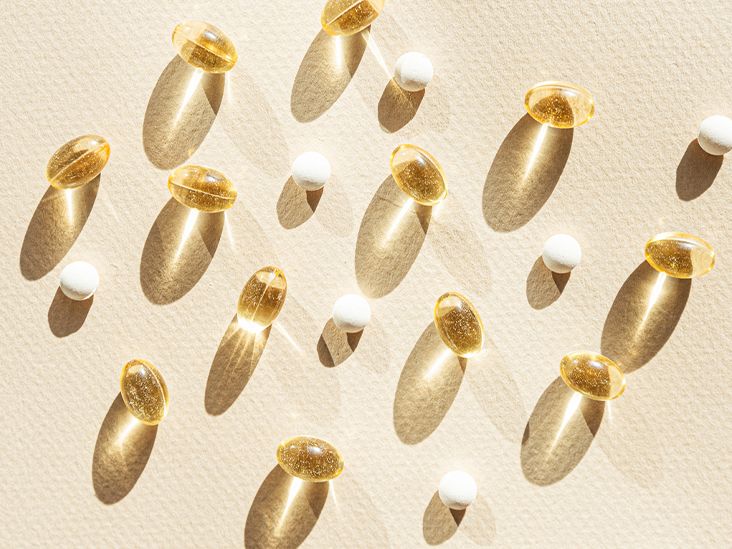Coffee by itself does not irritate ulcerative colitis. But this caffeine drink can stimulate the colon, which can be more uncomfortable for those living with the condition.

Many lifestyle factors can potentially affect how ulcerative colitis (UC) develops and when you experience flare-ups.
That includes what you eat and drink, such as coffee. This favorite, often caffeinated beverage may affect the digestive tract.
Yet, research isn’t clear on how this drink plays a part in UC development, why it causes symptom flare-ups for some people, and why it can make managing this digestive condition more difficult at times.
But why that happens isn’t clear.
A cup of coffee contains caffeine, beneficial antioxidant plant compounds known as polyphenols, and acids like chlorogenic acid. Some research suggests coffee may increase stomach acid, lead to heartburn, stimulate defecation, and affect the gut microbiome — the colony of microorganisms that reside in your gut.
Coffee has also been found to
Learn more about ulcerative colitis
Ulcerative colitis (UC) is a type of inflammatory bowel disease (IBD) that affects the colon. It’s associated with sores and ulcers throughout the lining of the colon or large intestine.
Symptoms of a UC flare include bloody diarrhea, frequent stools, mucous-like stools, abdominal pain, general feelings of fatigue, and weight loss. During remission, these symptoms may subside.
You can read more here about UC, the symptoms, and how you can treat this disease.
While some people attribute their UC symptoms to certain foods, only a few high quality
Instead of relying on studies, people with UC often identify which foods and drinks trigger their intestinal problems through trial and error — either on their own or with the help of a healthcare professional like a registered dietitian.
Even though there is a lack of research on caffeine and UC symptoms, the Crohn’s & Colitis Foundation lists coffee and other caffeinated drinks like soda as potential UC flare triggers.
Coffee can cause contractions within your digestive tract and speed up the elimination of its contents. In fact,
This effect was once attributed to coffee’s natural caffeine content. However, both decaffeinated and caffeinated coffee have been shown to stimulate bowel movements, so the effect is likely due to other chemical compounds like polyphenols or acids.
Because diarrhea is a common symptom of UC, anything that increases bowel movements may be undesirable. So, whether or not caffeine is at fault, coffee may be best avoided if you have UC and find that it worsens your symptoms.
While many people with IBD drink coffee, some do avoid it and attribute some of their intestinal symptoms to the drink.
Some people living with UC
Depending on what causes your UC flare-ups, you might try these tips to see if they help your symptoms after drinking coffee.
1. Try a smaller serving size
Maybe you’re unable to tolerate larger servings of coffee, but sticking to smaller portions can be possible.
If you keep a food diary, also record how much food or beverage you consume. You might find your sweet spot at 1 cup of coffee (8 ounces) per day rather than three cups.
2. Limit excess added sugars and sugar alcohols
Sugary foods are also on the list of potential trigger foods.
Lattes, frappuccinos, and macchiatos from cafes can contain upward of 20 grams of sugar.
Meanwhile, sugar alcohols like sorbitol and mannitol may be added to sugar-free coffee creamers. Sugar alcohols are also listed as potential UC triggers and
Try opting for unsweetened coffee to see if this triggers any UC symptoms. If you like and tolerate milk, milk alternatives, or cream in your drink, choose unsweetened versions of these add-ons.
3. Choose a dairy-free alternative
There are many plant-based milk and creamer options available — including soy, almond, oat, and coconut — that you can add to your coffee instead.
4. Avoid sources of carrageenan
Carrageenan is a food additive derived from seaweed. It thickens and preserves many foods, including coffee creamers.
5. Find alternatives to coffee
Staying hydrated with water is always important, especially if you’re experiencing a UC flare and losing a lot of liquid through frequent, runny stools.
In addition, consider adding electrolyte tablets to water or drinking electrolyte drinks during a severe flare. It’s important to replenish lost electrolytes to stay hydrated and keep your body’s nervous system and muscles working optimally.
Tea, including green tea, may also be a good drink option for those with UC. Tea is rich in antioxidants that may have anti-inflammatory properties and could help reduce flare-up symptoms.
However, remember that green, black, and oolong tea all have caffeine. Some herbal varieties can also have a laxative effect on some people. If you react negatively to drinking it, it’s likely best to avoid it.
You might try using a food diary to help determine which foods may irritate your UC.
Learn more here about how to use a food diary to chronicle what you’re eating and how it may affect your UC symptoms.
Health professionals may flag coffee as a drink to limit or avoid in terms of reducing your chances of a UC flare-up. Research is unclear why some people report having unwanted gut symptoms after drinking coffee, while others with UC do not experience those same effects.
Managing UC is a personalized approach that is different for everyone. If coffee is a concern, your healthcare team, especially your gastroenterologist or a registered dietitian specializing in digestive conditions, may offer more guidance and support in navigating your UC symptoms.







